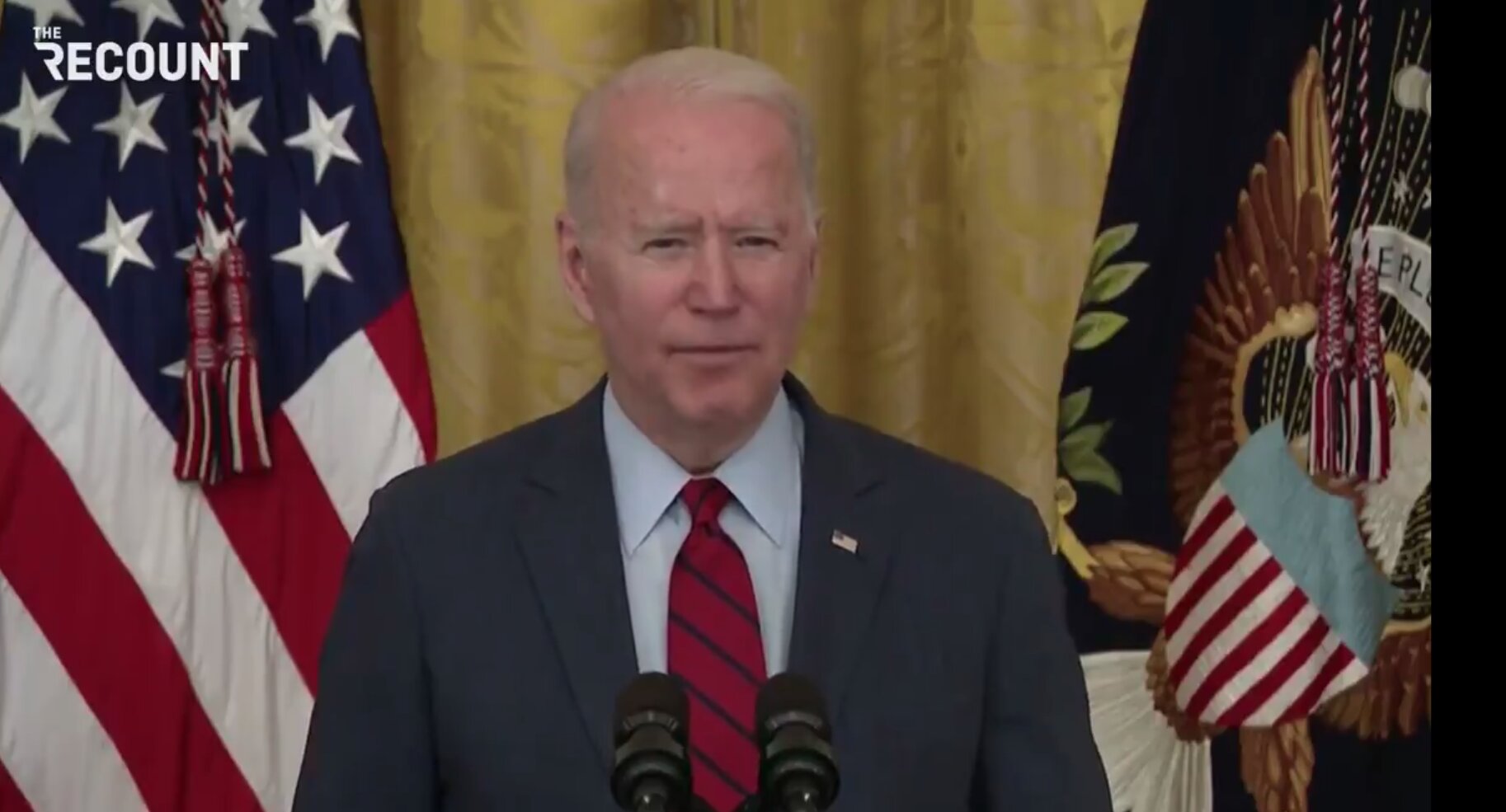President Joe Biden is touting a deal with a bipartisan group of senators on a $953 billion infrastructure package.
Speaking at the White House on Thursday, Biden said, “This deal means millions of good jobs and fewer burdens felt at the kitchen table and across the country.”
“But it also signals to ourselves and to the world that American democracy can deliver, and because of that it represents an important step forward for our country,” he added.
Watch the video below:
President Biden on bipartisan infrastructure deal:
— The Recount (@therecount) June 24, 2021
“It also signals to ourselves and to the world that American democracy can deliver.” pic.twitter.com/aGPh6N75J4
Biden announced he supported the package earlier on Thursday, which a White House release said was the “largest long-term investment in our infrastructure and competitiveness in nearly a century.”
The White House touted that the framework for an infrastructure package would make “transformational and historic investments in clean transportation infrastructure, clean water infrastructure, universal broadband infrastructure, clean power infrastructure, remediation of legacy pollution, and resilience to the changing climate.”
The framework would “improve healthy, sustainable transportation,” “repair and rebuild our roads and bridges with a focus on climate change mitigation, resilience, equity, and safety for all user,” “build a national network of electric vehicle (EV) chargers along highways and in rural and disadvantaged communities,” and “prepare more of our infrastructure for the impacts of climate change, cyber attacks, and extreme weather events.”
It allocates $109 billion on repairing the nation’s roads, bridges, and other major physical infrastructure projects.
Here is the spending breakdown for the bipartisan infrastructure proposal that President Biden has endorsed: pic.twitter.com/SNIBlQvVOm
— Kaitlan Collins (@kaitlancollins) June 24, 2021
Additionally, it would spend $7.5 billion to electrify school and transit buses, $55 billion on “water infrastructure,” and $65 billion on expanding access to high-speed internet.
The framework proposes paying for the package by redirecting unused funds from COVID-19 relief packages and unemployment benefits, as well as “Superfund fees for chemicals,” a “strategic petroleum reserve sale,” and “public-private partnerships, private activity bonds, direct pay bonds and asset recycling for infrastructure investment.”
Biden said during his remarks on Thursday that it does not include taxes on electric vehicles, a gas tax increase, or a tax increase for “earners below $400,000.”
While he touted the bipartisan framework for an infrastructure package, he told reporters he would not sign it unless Senate Democrats can pass another package with his other priorities through the budget reconciliation process which would allow them to pass a bill with just Democratic votes.
When asked why he trusts that Senate Republicans will stick to the deal, Biden said, “Mitt Romney’s never broken his word to me. The senator from Alaska, the senator from Maine, they’ve never broken their word. They’re friends. And so the people I was with today are people I trust. I don’t agree with them on a lot of things, but I trust them when they say, ‘This is a deal, we’ll stick to the deal.'”
Still, there is a long road ahead before the package is signed into law. To pass the legislation, Democrats would need at least Republican 10 votes in the Senate.
As CNBC reported, some progressive members of the Senate have voiced opposition to a bipartisan package. However, Sen. Rob Portman (R-Ohio) who helped craft the framework, is optimistic there will be enough Republican support to offset Democratic defectors in the upper chamber.
























